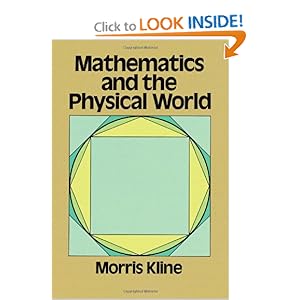Newton's alchemy manuscript found
Sir Isaac Newton, famous for his revolutionary work in mathematics, optics, gravity and the laws of motion, had a secret hobby.
A collection of his notes thought to have been lost 70 years ago reveal his passion for alchemy and fruitless attempts to turn lead into gold...
http://www.guardian.co.uk/education/2005/jul/01/highereducation.uk2
Sir Isaac Newton, the famous seventeenth-century mathematician and scientist, though not generally known as an alchemist, practiced the art with a passion. Though he wrote over a million words on the subject, after his death in 1727, the Royal Society deemed that they were "not fit to be printed."
The papers were rediscovered in the middle of the twentieth century and most scholars now concede that Newton was first an foremost an alchemist. It is also becoming obvious that the inspiration for Newton's laws of light and theory of gravity came from his alchemical work.
If one looks carefully, in the light of alchemical knowledge, at the definitive biography, Sir Isaac Newton by J. W. V. Sullivan, it is quite easy to realize the alchemical theories from which he was working.
Sir Arthur Eddington, in reviewing this book, says: "The science in which Newton seems to have been chiefly interested, and on which he spent most of his time was alchemy. He read widely and made innumerable experiments, entirely without fruit so far as we know." One of his servants records: "He very rarely went to bed until two or three of the clock, sometimes not till five or six, lying about four or five hours, especially at springtime or autumn, at which time he used to employ about six weeks in his laboratory, the fire scarce going out night or day. What his aim might be I was unable to penetrate into."
The answer is that Newton's experiments were concerned with nothing more or less than alchemy. (fromAlchemy Rediscovered and Restored by A. Cockren)...
http://www.alchemylab.com/isaac_newton.htm
The British oligarchy praises Newton as the founder of modern science. But, at the same time, they have been unable to keep secret the fact that Newton was a raving irrationalist, a cultist kook.
Among the oligarchs, it was the British economist Lord John Maynard Keynes and a fellow Cambridge graduate who began to open the black box of Newton's real character. Was Newton the first and greatest of the modern scientists, the practitioner of cold and untinctured reason? No, said Keynes, Newton was not the first of the Age of Reason.
He was the last of the magicians, the last of the Babylonians and Sumerians, the last wonderful child to whom the Magi could do sincere and appropriate homage.
Keynes based his view on the contents of a box. What was in the box?
The box contained papers which Newton had packed up when he left Cambridge for London in 1696, ending his Cambridge career and beginning his new life in London as member and president of the British Royal Society, director of the mint, resident magus of the new British Empire.
Inside the box were manuscripts and papers totalling some 1.2 million words. After Newton's death, Bishop Horsley was asked to inspect the box, with a view to publication, but when he saw the contents, he recoiled in horror and slammed the lid.
A century passed.
Newton's nineteenth-century biographer, Sir David Brewster, looked into the box. He decided to save Newton's reputation by printing a few selections, but he falsified the rest with straight fibbing, as Keynes says.
The box became known as the Portsmouth Papers. A few mathematical papers were given to Cambridge in 1888. In 1936, the current owner, Lord Lymington, needed money, so he had the rest auctioned off. Keynes bought as many as he could, but other papers were scattered from Jersualem to America.
As Keynes points out, Newton was a suspicious, paranoid, unstable personality...
http://american_almanac.tripod.com/venscien.htm#newton
